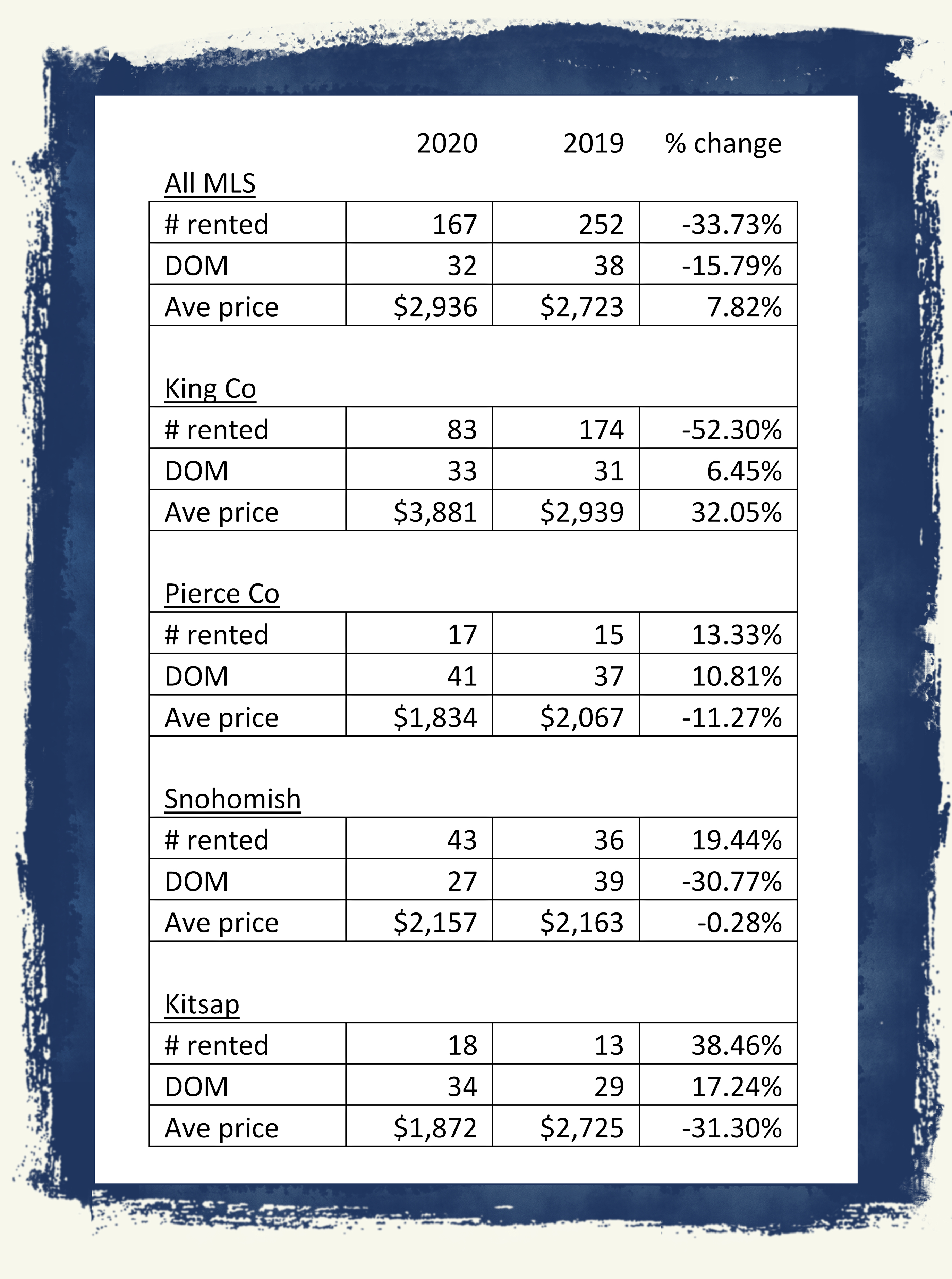Although rental demand is usually highest during the summer months, COVID-19 and its repercussions have changed the trend this season.

According to a Zumper report this month, all of the top 10 priciest cities (Seattle is #8) either had flat or declining rents. Many tenants are electing to renew leases rather than moving. This is partly due to health concerns, but the governor’s ban on rent increases is also a factor. In addition, as many companies are considering long-term remote work options, many renters are searching for more affordable options outside of metropolitan centers. Many do not want to pay higher inner city rent, especially when they cannot use community amenities.
Zumper’s research shows that San Francisco one-bedroom rent is down 9.2% since this time last year, which is also the lowest price point it has been since March 2017. In Seattle, year-over-year, one-bedroom rentals are down 4.3% and two bedrooms are down 4.6%.
We are here to help you and your clients with all aspects of the rental market. Please contact us for further assistance!
Nothing found herein should be construed as an attempt to offer or render a legal opinion or otherwise engage in the practice of law. You should not rely solely on this information. We encourage our clients to work with a lawyer experienced in commercial and/or residential real estate matters as they can be complicated and confusing.


 Facebook
Facebook
 X
X
 Pinterest
Pinterest
 Copy Link
Copy Link


